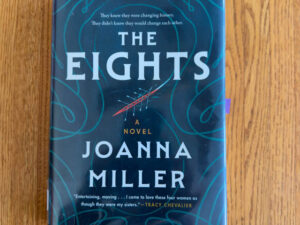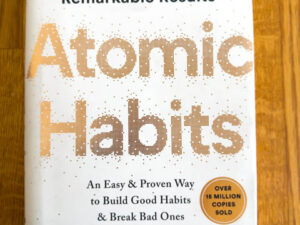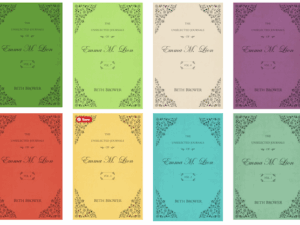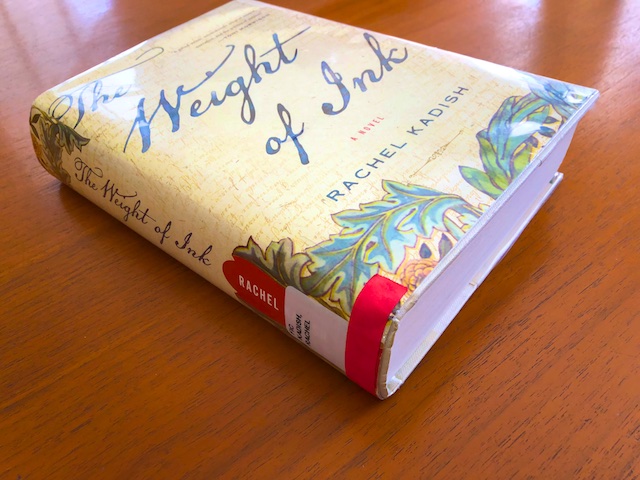
–
Even though it took a long time to read, I liked this book very much and give it five stars. At 576 pages, it is long, while feeling even longer since it is slowly paced. However, the book gradually compounds in such a way that it becomes quite satisfying. The story has enough room to build to where you really care about what happens.
It is set among Jews in England in the 1600’s, before, during, and after the plague. The main character is an orphaned young woman, who scribes for a blind Rabbi that lost his sight in the Inquisition, and who has been sent to London to establish Judaism there. Their collective work is found under a stair over 300 years later, and the story bounces between the present day scholars examining those documents and piecing together the story, and those doing the actual living and writing hundreds of years prior. Sometimes it is a poor device when novels bounce radically between two such different times, but in this story it is handled seamlessly and naturally.
Spinoza plays a part in this well-researched novel as well, and instead of coming off as the pantheist I had previously thought him to be, here he is attributed as believing that life is God and that therefore, God never ordains nor supports martyrdom. I found this interesting since I agree with this version of his thought, where I disagree with my preconception of what he stood for. I also appreciated the main character’s dogged desire for scholarship and achievement regardless of the fact that she was a woman. She was intelligent and thoughtful, but with just enough audacity to be both intriguing and successful.
The present day portion centers around a female professor at the end of her career, and a young graduate student from America. They bond over the project of analyzing these found documents and you get some of their back story along the way. Seeing people through a lens spanning the centuries works to emphasize the philosophical points the documents themselves are exploring. Fundamental to life in all time is love, desire, meaning, and rational thought, as well as the seizing of a legacy if possible.
This is beautiful literature that is worth the time if you can spare it. You will be better for having lingered here a while. And it is worth the wait to see how things unexpectedly work out in the end. I am so fulfilled with this read that I feel unwilling to start another book anytime soon; I need to linger a while more in the afterglow of this one.
–
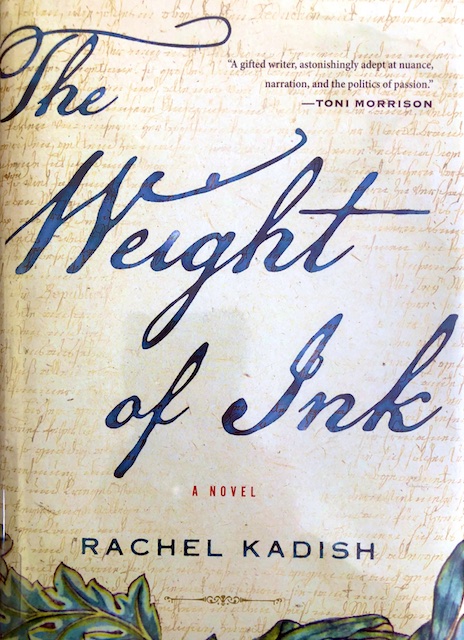
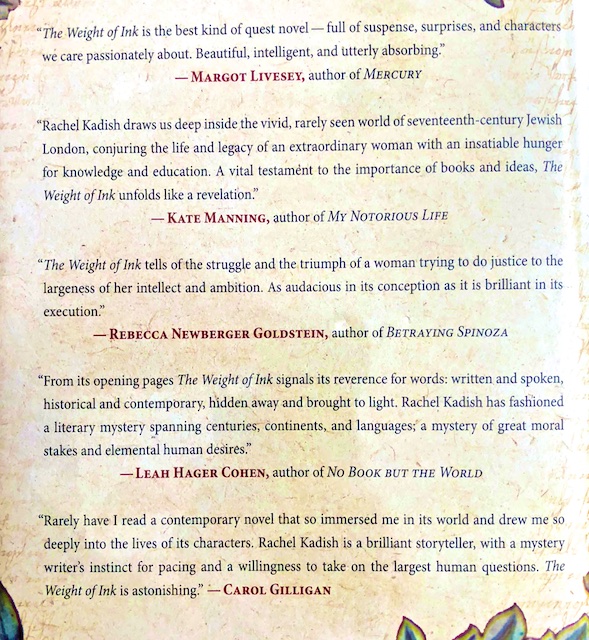
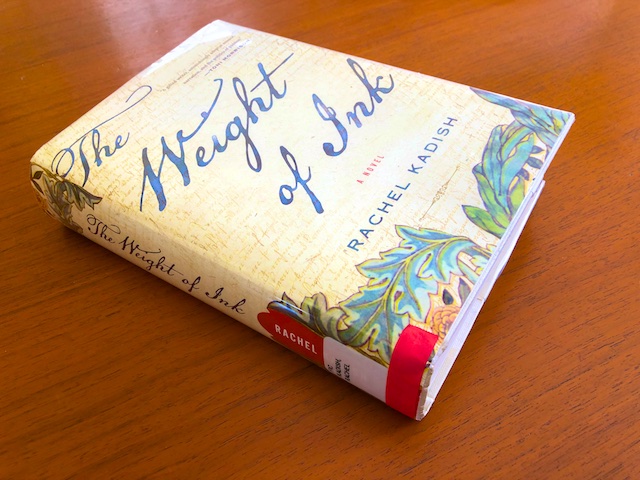
1 Comment
Pingbacks
-
[…] A long book: The Weight of Ink […]
